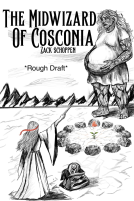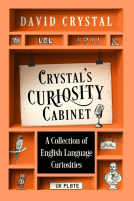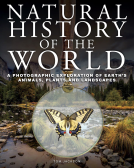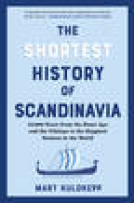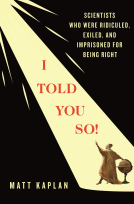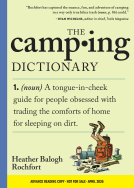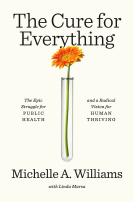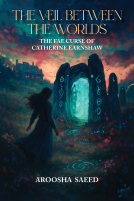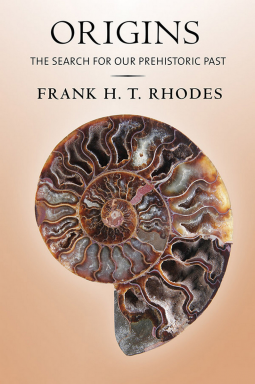
Origins
The Search for Our Prehistoric Past
by Frank H. T. Rhodes
This title was previously available on NetGalley and is now archived.
Send NetGalley books directly to your Kindle or Kindle app
1
To read on a Kindle or Kindle app, please add kindle@netgalley.com as an approved email address to receive files in your Amazon account. Click here for step-by-step instructions.
2
Also find your Kindle email address within your Amazon account, and enter it here.
Pub Date Jul 29 2016 | Archive Date Aug 30 2016
Cornell University Press | Comstock Publishing Associates
Description
"Fossils are the fragments from which, piece by laborious piece, the great mosaic of the history of life has been constructed. Here and there, we can supplement these meager scraps by the use of biochemical markers or geochemical signatures that add useful information, but, even with such additional help, our reconstructions and our models of descent are often tentative. For the fossil record is, as we have seen, as biased as it is incomplete. But fragmentary, selective, and biased though it is, the fossil record, with all its imperfections, is still a treasure. Though whole chapters are missing, many pages lost, and the earliest pages so damaged as to be, as yet, virtually unreadable, this—the greatest biography of all—is one in whose closing pages we find ourselves."—from OriginsIn Origins, Frank H. T. Rhodes explores the origin and evolution of living things, the changing environments in which they have developed, and the challenges we now face on an increasingly crowded and polluted planet. Rhodes argues that the future well-being of our burgeoning population depends in no small part on our understanding of life's past, its long and slow development, and its intricate interdependencies.Rhodes’s accessible and extensively illustrated treatment of the origins narrative describes the nature of the search for prehistoric life, the significance of geologic time, the origin of life, the emergence and spread of flora and fauna, the evolution of primates, and the emergence of modern humans.
A Note From the Publisher
Advance Praise
"In Origins, an overview of the history of life on Earth for the nonspecialist reader, Frank H. T. Rhodes starts with origins and traces a winding path to human evolution. This book is a highly readable treatment of an important and interesting topic."—Michael Foote, University of Chicago
Available Editions
| EDITION | Other Format |
| ISBN | 9781501702440 |
| PRICE | $29.95 (USD) |
Links
Average rating from 8 members
Featured Reviews
Good look at the origins of life as we know it now
This book is about how life evolved to what it is today. It is a rather comprehensive look at biology. When author Frank Rhodes writes to explain, his writing is very clear, and the text very well written. However, when he goes through all the details of the life forms, their fossils and how they evolved, I got bogged down in the details. Nonetheless I enjoyed the book. I also found the book well illustrated.
 Bill C, Reviewer
Bill C, Reviewer
In Origins: The Search for Our Prehistoric Past, Frank H.T. Rhodes gives both a broad overview and an at times detailed explanation of the beginnings of our biological classifications and their subsequent evolution into the forms we’re familiar with today. It’s mostly a solid, concise introduction to an obviously huge and complex topic, though early on it felt a bit randomly constructed and a little less fluid than I would have liked.
The text is liberally sprinkled with helpful diagrams and illustrations, and Rhodes’ clear prose makes it always readable and informative. Writing, as he says, for the “general reader,” he doesn’t overburden the reader with too many highly technical terms or obscure references, doing a nice job for instance of briefly explaining the switch from the old classification models to cladistics and the issues arising from the changeover. The prose is clear, as mentioned, but I can’t say it’s particularly engaging until nearer the end.
Rhodes covers the gamut on land and sea, from protists to whales, animals and plants. This fits with the idea of an overview, but at times things can therefore come a bit quickly and threaten to overwhelm the reader somewhat or leave them wanting more (say, for instance, in the section on human lineage), though for the most part Rhodes dances on the edge of this becoming a problem rather than tipping over into it becoming too problematic.
There were a few other niggling issues I had. Now and then Rhodes defines a word after having already used it several times, rather than defining it in its first usage; there’s some repetition throughout, and now and then I wished for some fresher examples (for instance we get Darwin’s finches, the industrial butterfly adaptation, etc.).
But those issues are mostly overcome by the book’s positives—its general clarity, its thoroughness, its breadth extending beyond the animal kingdom or just the vertebrates. the liberal use of clarifying diagrams/illustrations., a useful glossary. The closing section is particularly strong in terms of the writing, and in fact, Rhodes’ prose style comes so alive in this segment that one wonders where that was all along. Here, for instance, is Rhodes on the “story” of evolution:
There is nothing more breathtaking in the whole of human experience than the contemplation of this ceaseless cavalcade of living things, hovering between birth and death on the surface of our tiny planet . . . But this outer view is only one facet of the grandeur and mystery and beauty of it all, for within and through the bodies of each of these countless individuals there has pulsed the breath of life . . . . A bewildering maze of intricate chemical and physical and biological changes have interacted to produce and maintain this frail thread of life that binds us all.
More of this would have pushed this book into the excellent category, and one wonders why Rhodes was so restrained stylistically early on. But if the text doesn’t soar, it still succeeds at serving as a brief, lucid introduction to how the world we live in came about, as well as a warning about our impact on that world. Recommended despite some issues.
Readers who liked this book also liked:
Mart Kuldkepp
History, Nonfiction (Adult), Politics & Current Affairs


